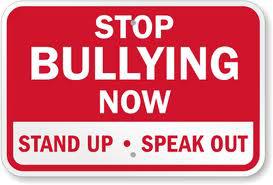Hands up, nurse colleagues, if you recognize this story: bright young new grad lands dream job in sophisticated critical care unit by dint of hard work, persistence and perseverance, finds said unit is actually populated by orcs, trolls and toads. NurseXY provides the unpleasant details:
It was nice while it lasted, but the honeymoon is over. The true colors of my coworkers are starting to show through.
[SNIP --- but NurseXY's post continues with a heart-warming tale of nurses acting their very best. Go read the whole thing.]
I’m so very tired of hearing, [he goes on] “You have to be careful how you approach so and so about that.”
Why can’t I openly and clearly communicate my patient’s needs to those responsible for assisting me in caring for them? I am so tired of having to slink up to various people from docs to support staff like a helpless, hapless junior high damsel in distress to get what my patient needs. Too many egos to stroke. I demand respectfully request you grow the #@$) up.
And it’s only been 3 1/2 months!!!
I’ve written about the phenomenon of nurses behaving badly to their colleagues so often it’s tiresome. And sadly, I think, we’re all complicit in permitting bullying behaviour amongst ourselves, whether we are experienced nurses “breaking in” new staff, managers who avoid the issue, or tacitly permit it as a management technique (and this is far commoner than you might think), or educators who think abuse is the best way to train new nurses. It’s so ugly and so pervasive I sometimes despair for my profession.
RNnnnrGrl, after reading NurseXY’s post, vents on her blog at some length about the special hell of working with “seasoned nurses.” She’s on the mark, but maybe not in the way she thinks. While I don’t believe for a minute that bullying nurses make up more than a tiny fragment of our profession, how many times have we older nurses stood by silent while we let a bully tear into a nurse? When we passively let them stand unchallenged, it’s effectively the same as being bullies ourselves. So what to do? An excellent article at Medscape provides some practical responses to bullying:
Murray suggests that nurses should take a collaborative approach to bullying; nurses should “look out for each other,” and support victims of bullying during and following an episode, including reporting the incident.Victims are encouraged to document incidents of bullying, including date, time, site of occurrence, and witnesses.
Dellasega has this advice for nurses who witness an episode of bullying: “Intervene quickly to prevent minor conflicts from escalating.” Often, she continues, “a misperception or false assumption triggers behavior that spins out of control.” Because bystanders usually outnumber bullies and victims, they can act together to alter the situation’s dynamic and avert a bullying incident. “You can intervene on behalf of a coworker who is being bullied by asking her to help you with a task in another location, speaking up on her behalf, or simply standing beside her.” Dellasega also cautions nurses about participating in gossiping, which is also a form of bullying. [Emphasis mine]
I’ve highlighted the last bit because I think it speaks to something vitally important to the nursing profession, but often lacking: a sense of solidarity with your colleagues. Let’s say this plainly: either you stand with your colleagues, or you stand with the bullies. Afraid of retaliation or intimidation? You already have courage. You’re a nurse, right?
[Also, Sean Dent on the same.]
